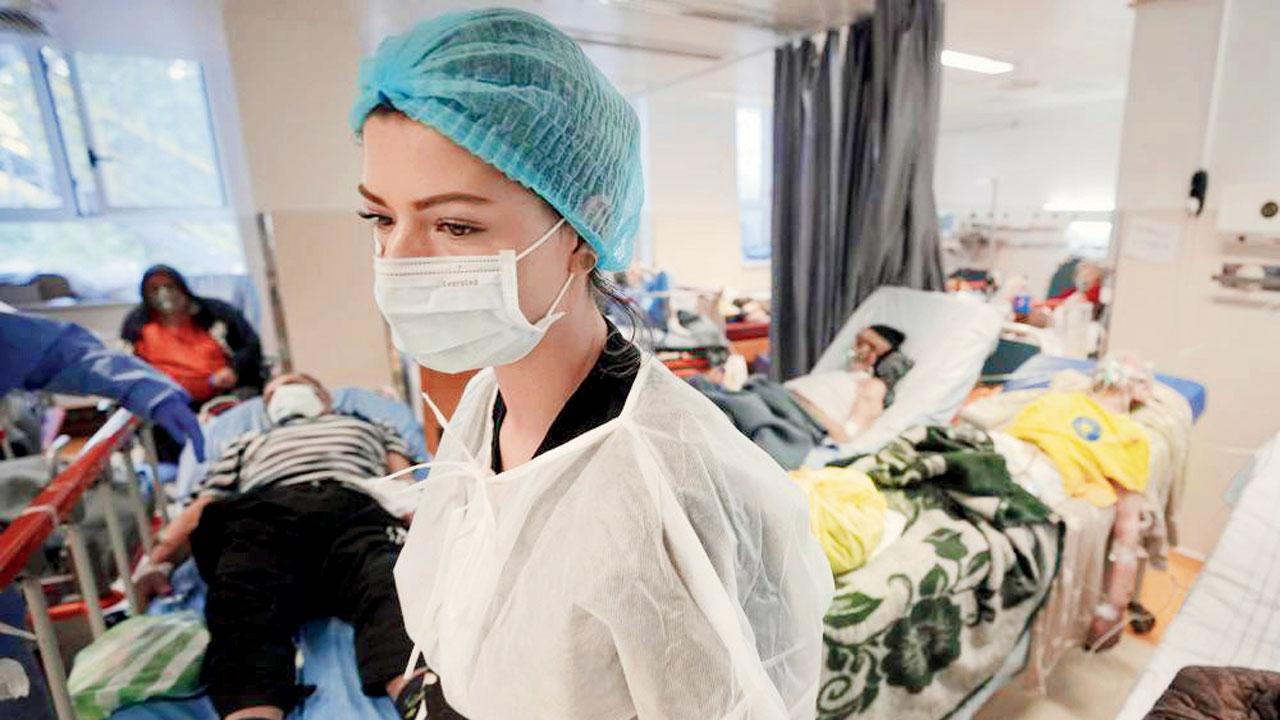As Europe emerges as the epicentre of Covid-19, countries are increasingly resorting to veiled coercion

With infections spiking again despite nearly two years of restrictions, the health crisis increasingly is pitting citizen against citizen—the vaccinated against the unvaccinated. Pic/AP
This was supposed to be Christmas time in Europe where family and friends could once again embrace holiday festivities and one another. Instead, the continent is the global epicentre of the Covid-19 pandemic as cases soar to record levels in many countries. With infections spiking again despite nearly two years of restrictions, the health crisis increasingly is pitting citizen against citizen—the vaccinated against the unvaccinated. Governments desperate to shield overburdened healthcare systems are imposing rules that limit choices for the unvaccinated in the hope that doing so will drive up rates of vaccinations.
ADVERTISEMENT
Starting Monday, Slovakia is banning people who haven’t been vaccinated from all non-essential stores and shopping malls. They also will not be allowed to attend any public event or gathering and will be required to test twice a week just to go to work. “A merry Christmas does not mean a Christmas without Covid-19,” warned Prime Minister Eduard Heger. He called the measures “a lockdown for the unvaccinated.”
Slovakia, where just 45.3 per cent of the 5.5 million population is fully vaccinated, reported a record 8,342 new virus cases on Tuesday. It is not only nations of central and Eastern Europe that are suffering anew. Wealthy nations in the west also are being hit hard and imposing restrictions on their populations once again.
Greece, too, is targeting the unvaccinated. Prime Minister Kyriakos Mitsotakis announced a battery of new restrictions on Thursday for the unvaccinated, keeping them out of venues including bars, restaurants, cinemas, theatres, museums and gyms, even if they have tested negative. “It is an immediate act of protection and, of course, an indirect urge to be vaccinated,” Mitsotakis said.
Australians’ fear of Covid-19 rises
More Australians than ever think they will contract Covid-19 in the short-term future despite the high vaccination rate, a survey has found. Researchers from Australian National University recently published the latest edition of their study on the impact of the Coronavirus pandemic across the country. It found that 40 per cent of Australians think they are likely to catch Covid-19 in the next six months—the highest rate during the pandemic, Xinhua news agency reported.
Austria to go under lockdown
Austria announced a national lockdown and a plan to mandate vaccinations as Coronavirus infections hit a record high on Friday, forcing the government to walk back promises that strict shutdowns were a thing of the past. While the scope of the proposed mandate was unclear, a blanket requirement would be a first for a Western country. Chancellor Alexander Schallenberg said those who didn’t comply would likely be fined, but gave no other details. The moves come as vaccinations in Austria have plateaued at one of the lowest rates in Western Europe, and as hospitals in heavily hit states have warned that their intensive care units are reaching capacity. Average daily deaths have tripled in recent weeks. The lockdown will start on Monday and will initially last for 10 days, after which it will be reevaluated, Schallenberg said. Starting February 1, the country will also make vaccinations mandatory—though the chancellor gave few details about what that meant or how it would work.
257,180,131
Total number of Coronavirus cases in the world
5,159,330
Number of deaths worldwide
232,203,564
Number of recovered patients
This story has been sourced from a third party syndicated feed, agencies. Mid-day accepts no responsibility or liability for its dependability, trustworthiness, reliability and data of the text. Mid-day management/mid-day.com reserves the sole right to alter, delete or remove (without notice) the content in its absolute discretion for any reason whatsoever
 Subscribe today by clicking the link and stay updated with the latest news!" Click here!
Subscribe today by clicking the link and stay updated with the latest news!" Click here!







